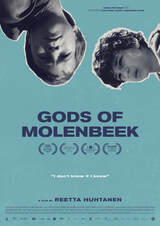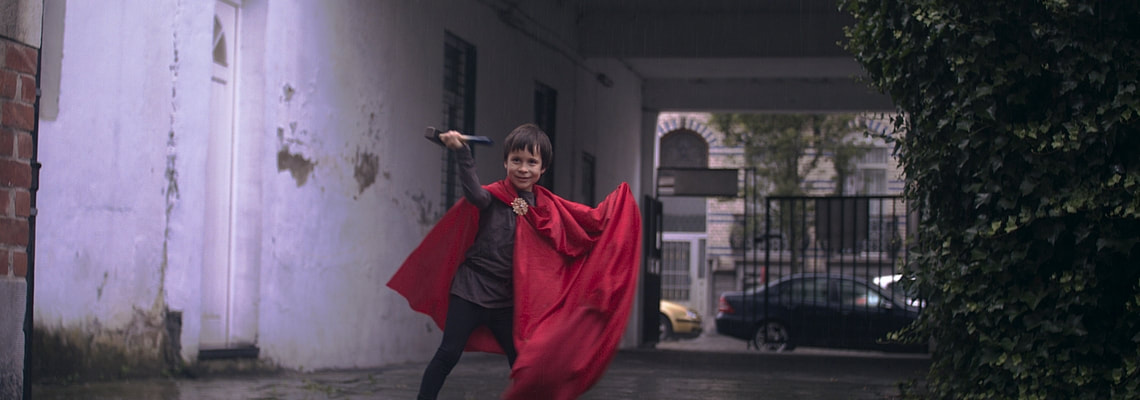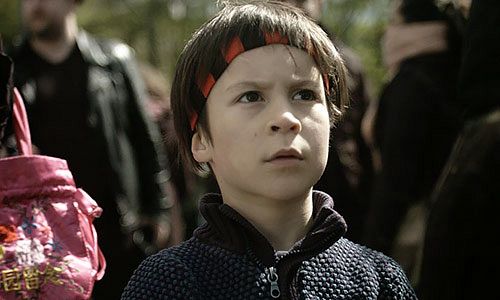|
6-year old Aatos has a deep curiosity about gods, death, myths, and spiritual beliefs. His friend Amine is Muslim and lives just downstairs. Together they listen to spiders dress up as zombies and take imaginary carpet rides. Flo is a brave and profound nature lover who insists that “you have to find the essence”. Throughout the film, Aatos asks big, sometimes unanswerable questions about different kinds of gods and what happens when you die. He gets some deep, honest, and sometimes bizarre answers from his friends. He is being raised in a strong inclusive community but bombings, islamophobia, and division are in his periphery, threatening to pierce his childhood. “Gods of Molenbeek” has a narrative style that gives the feeling of a scripted drama. It has no traditional talking heads or interviews and it’s aesthetic both puts the children at the centre and absorbs the audience in their world. We play with them, dance with them, cry with them, and are given permission to question our own beliefs as easily as they do. Somewhat unusually, the film is mostly shot from the height of a 6-year old, often cutting off the heads of the adults around them. Particularly in crowd scenes, we’re shown the children’s faces amongst anonymous bustling adult bodies. From this perspective, we see that even peaceful demonstrations come across as charged with a passion that’s scarier than empowering. But the work of building a progressive and inclusive community is done in the home where neighbours share food and song across multiple languages and cultures. The audience is left considering the different tools we use to break down barriers and create change. And how we can raise children to be less divided than their parents. For the children, understanding and inclusivity come naturally through the simple act of playing together and this is a source of great optimism. But the film does not have a one-sided agenda or a point to prove. It lets the children play and talk without interference. It’s in these open spaces where they process big topics and nothing is too huge for them to deal with in their own way. Aatos asks “Is nature a God?” “What comes after death?” and “Who is the greatest God in the world?” News reports and their experiences of the violence and division around them start to get acted out in their play and at storytime. Aatos has his little schoolbag searched by an armed soldier, and anonymous adults shout on the street around them. These moments are somewhat heartbreaking but the overall tone is still incredibly hopeful. The children should not be shielded from events but encouraged to process them. This is a beautiful, hopeful and engaging documentary with an incredibly absorbing style. We see where society is going wrong through fresh innocent eyes. If we could all see the world through these eyes more often perhaps our communities would be more unified rather than divided.
Comments are closed.
|
AuthorHi, I'm Caz. I live in Edinburgh and I watch a lot of films. My reviews focus mainly on women in film - female directors or how women are represented on screen. Archives
December 2021
Categories
All
|






 RSS Feed
RSS Feed
